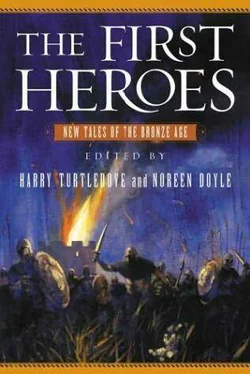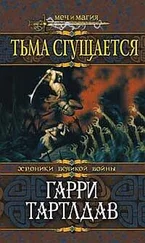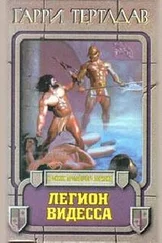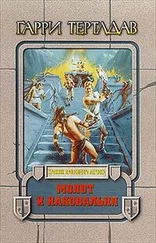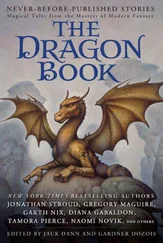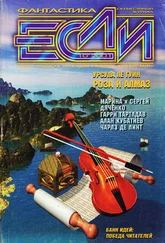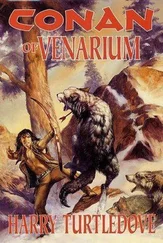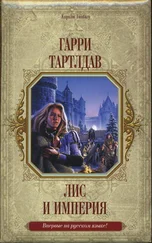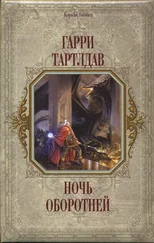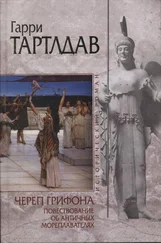Гарри Тертлдав - The First Heroes
Здесь есть возможность читать онлайн «Гарри Тертлдав - The First Heroes» весь текст электронной книги совершенно бесплатно (целиком полную версию без сокращений). В некоторых случаях можно слушать аудио, скачать через торрент в формате fb2 и присутствует краткое содержание. Жанр: Фантастика и фэнтези, на английском языке. Описание произведения, (предисловие) а так же отзывы посетителей доступны на портале библиотеки ЛибКат.
- Название:The First Heroes
- Автор:
- Жанр:
- Год:неизвестен
- ISBN:нет данных
- Рейтинг книги:3 / 5. Голосов: 1
-
Избранное:Добавить в избранное
- Отзывы:
-
Ваша оценка:
- 60
- 1
- 2
- 3
- 4
- 5
The First Heroes: краткое содержание, описание и аннотация
Предлагаем к чтению аннотацию, описание, краткое содержание или предисловие (зависит от того, что написал сам автор книги «The First Heroes»). Если вы не нашли необходимую информацию о книге — напишите в комментариях, мы постараемся отыскать её.
The First Heroes — читать онлайн бесплатно полную книгу (весь текст) целиком
Ниже представлен текст книги, разбитый по страницам. Система сохранения места последней прочитанной страницы, позволяет с удобством читать онлайн бесплатно книгу «The First Heroes», без необходимости каждый раз заново искать на чём Вы остановились. Поставьте закладку, и сможете в любой момент перейти на страницу, на которой закончили чтение.
Интервал:
Закладка:
There came a morning when, having camped in a green and pleasant valley, they descended by a steep narrow track. It surmounted a ridge and, at midmorning, bent sharply round the knee of the mountain.
There before them was not yet another wilderness of peaks but a wide green country rolling toward a distant dazzle and shimmer.
"The sea," Inanna said. He had not heard or sensed her coming, but she was beside him. The mountainside dropped away almost beneath her feet, but she stood as calmly as if on level ground.
"Look, do you see? There is Aratta."
He had seen it, but at that distance and out of the last of his mountain-born befuddlement he had taken it for an outcropping of rock. It was built on such, he saw as he peered under his hand, but its walls were deep and high, and within them he saw the rise of towers.
It was a greater city than he had expected. It was not as great or as noble as Uruk, but its splendors were manifold. Its walls were of stone, its gates of massive timbers bound with bronze. Its houses and palaces and the towers of its temples were built of wood and stone. The wealth of that, the extravagance, were unimaginable in a world of mud brick, but here they were commonplace.
They were three days on the road between the mountains and the city. Lugalbanda had sent men ahead, swift runners with strong voices, to proclaim the goddess's coming. They performed the task well: when the caravan came to Aratta, they found its walls hung with greenery and its processional way strewn with flowers.
Inanna allowed herself to be carried in like a sacred image, borne on the shoulders of the tallest and strongest of her guards. She had put on a gown of fine linen and ornaments of gold and lapis, and set a diadem of gold over her plaited hair, with golden ribbons streaming down her back and shoulders. She was as bright as a flame in the cool sunlight of this country, where everything was green, and the earth's bones were hidden beneath a mantle of grass and forest.
The king of Aratta received her at the door of his high stone house. He was a younger man than Lugalbanda had expected, tall and broad and strong, with the look of a fighting man and the scars to go with it. He watched Inanna's coming with an expression almost of shock, as if he had never seen a goddess before.
It was a remarkable expression, like none that Lugalbanda had seen before. After a while he set a name to it. It was hunger: not the hunger of the starving man who sees welcome sustenance, but of the rich man who thought that he had seized all the wealth that was to be had, but now he sees a treasure that is not his—and he must have it, whatever the cost. As quickly as it had appeared, it receded into his eyes. He smiled the practiced smile of kings and greeted the goddess and her following in a fair rendering of the dialect of Uruk. She replied with dignity.
Lugalbanda did not listen to the words. He watched the faces. The god was not here: there was only one divinity in this place, and she had drawn every eye to her. No god would have borne such a distraction.
At length the king bowed and turned and led the goddess into his house. Lugalbanda followed at a wary distance. The caravan dissipated within the king's house; only Lugalbanda's own men followed the goddess to the depths of it, and there guarded her.
Embassies, even urgent ones, were leisurely proceedings. It would be days before anyone came to the point. Today they feasted and exchanged compliments. No word was spoken of the caravan of gifts and grain, or of the message that had come with it.
Nor did they speak of the god—not the king, and not the high ones seated near him, and certainly not Inanna. But in the farther reaches of the hall, among the young men, the talk was of little else. They were all wild to master the new weapon, which they called a chariot. "It is wonderful," they said. "Remarkable. Divine. To ride in it, it's like riding the wind."
"I should like to see this thing," Lugalbanda said. "Is it winged? Do the winds carry it?"
"Oh, no," they said. "You should see, yes. Come after all this feasting is over. We'll take you to see the chariots."
Lugalbanda made no secret of his pleasure in the invitation. They had no wariness in them, and no fear of betraying their city. They seemed as innocent as children. They were full of stories of the god: how he had come from a far country; how he had offended a goddess there and been broken for it, and still walked lame; how that curse had pursued him even to Aratta, and taken his consort and his daughter, and left him alone in a world of mortal strangers.
Lugalbanda must remember that these were strangers to him just as they were to the god, that even close allies could turn to enemies. Trust no one, the elders of Uruk's council had admonished him, and offer service to none but the goddess herself.
He was the elders' servant before all else. He exerted himself to be pleasant company and drank maybe a little more than was wise, but it was difficult to refuse his hosts' persuasion—and the beer was surprisingly good for an outland brew.
They were all much warmer than the sun warranted when the feast meandered to its end. Lugalbanda had a new band of dearest friends, each one dearer than the last, and all determined to show him their wonderful new god.
The god was in his temple, forging bronze. The roar of the forge and the ring of the hammer resounded in the courtyard, silencing even the most boisterous of the young men. Wide-eyed and mute with awe, they crept through the gate into the inner shrine.
In Uruk it would have been a place of beauty and mystery, glimmering with lapis and gold, and made holy with the image of the god. Here were walls of stone unadorned but for the tools of the smith's trade. The stone was dark with old smoke, but the tools were bright, with the look of frequent use. On the far wall, where would have hung a tapestry woven in honor of the god, was a wonder of work in gold and bronze and silver, brooches and ornaments and oddities that might be trappings for chariot teams.
Later Lugalbanda would marvel at the artistry of the work, but his eye was caught by the figure that bent over the forge. There were others in the hall, laboring as he labored, but they were mortal. This truly was a god.
He had come, they said, from the land of the sunrise. Its light was in him, shining out of him. His skin was the color of milk, his hair new copper shot with gold. His eyes when he lifted them were the color of reeds in the first light of morning, clear green shot through with shadow.
There was a great sadness in them, a darkness of grief, overlaid with pain. He lived, said that flat stare, because he had no choice. Life was a curse, and death was not granted him. The light was gone from the world.
"His consort," said one of Lugalbanda's new friends: "the greater gods took her to themselves—oh, a while ago."
"Five winters past," one of the others said. "A fever took her, and the daughter she had borne him. It was the fire of the gods, the priests said, taking back their own. There was nothing left of them but ash."
"They burned away to nothing?" Lugalbanda asked, barely above a whisper, although the others did not trouble to lower their voices.
"Not their bodies," his new friend said with a touch of impatience. "Their hearts and souls, their lives: all were gone in a day and a night. They were the breath of life to him, but they weren't permitted to linger here below. The gods wanted them back."
"But they didn't want him?" said Lugalbanda. "My work is not done," the god said. His voice was soft and deep. He shaped the words strangely, but they were clear enough to understand.
Lugalbanda swallowed hard. He had thought, somehow, that the god was like his greater kin: oblivious to human nattering unless it was shaped in the form of prayer. But he wore flesh and walked visible in the world; of course he could hear what people said in his presence.
Читать дальшеИнтервал:
Закладка:
Похожие книги на «The First Heroes»
Представляем Вашему вниманию похожие книги на «The First Heroes» списком для выбора. Мы отобрали схожую по названию и смыслу литературу в надежде предоставить читателям больше вариантов отыскать новые, интересные, ещё непрочитанные произведения.
Обсуждение, отзывы о книге «The First Heroes» и просто собственные мнения читателей. Оставьте ваши комментарии, напишите, что Вы думаете о произведении, его смысле или главных героях. Укажите что конкретно понравилось, а что нет, и почему Вы так считаете.
